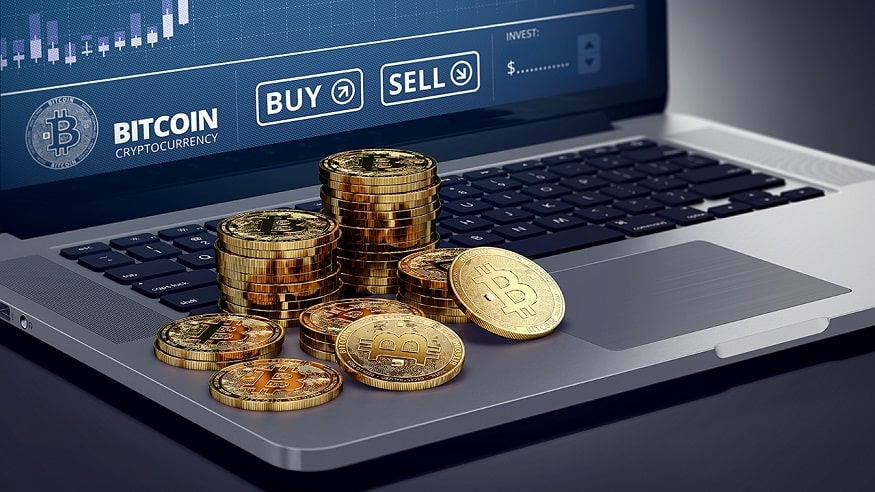Where do expats invest their money? part 2 – Part one is here.
The top riskier investments
Even if you are not against risk and do not force partners to refuse it at all, here are the top investment options that are the riskier. If you are investing to earn money, then even options tied to high market volatility can help you earn income. The risk of the tools that we will talk about later is concentrated in these main aspects:
- non-refund or return of incomplete amount;
- the absence in most cases of a regulatory and documentary regulatory framework on the part of the state, and hence the protection of the investor;
- not all methods provide for the official conclusion of an agreement with the depositor.
IPO

This option involves the purchase of securities during the initial offering. There is a significant risk that the starting price will be artificially heated, and when the listing actually happens, the shares will fall in price, and if they grow, it will be a very long time. The risks are also high from the position that the services of a broker, without which the process is impossible, will be higher than the potential profitability.
Investment online projects
A popular destination for investors due to fast payback periods, different starting amounts, and due to the fact that no tax is paid on the profits received. This is a fairly good tool, but if it is no more than 10-15% of the entire portfolio. My opinion is that for diluting methods, their quantities are the best fit.
Cryptocurrency

At the moment, this is a way where you do not need to invest money, since the price of BTC and altcoins is at its peak, bitcoin beats its historical records on a weekly basis and trades even higher than 47 thousand dollars per coin.
In the long term, the instrument is profitable if you “stock up” when the market shows a red trend and expect an increase in value, which is not known when this will happen. Remember the importance of reliable wallets for storing cryptocurrency.
Forex
On this market, you can trade binary options, open currency transactions, but, like other instruments, they are subject to high risks and directly depend on the mood of the market.
If you already choose this option, remember the percentage in the entire portfolio (It is recommended up to 10% of its total volume), as well as the fact that you need to find a reliable intermediary company, broker or bank to conduct transactions with the appropriate license.
Start-up projects
Considering sites for investors, you can take a closer look at crowdfunding platforms where funds are raised for the implementation of a particular project. In fact, you can make good profits, but the risk that the business simply will not develop further or that the manager simply decided to “collect a string from the world” always remains quite high.
Is it worth investing in foreign currency?

A well-known way of investing is deposits in foreign currency. The most liquid are euro, dollar and bitcoins, cryptocurrency. But the exchange rate is quite volatile. The currency market is not the most reliable option.
It is best to buy currency on the stock exchange. The most famous with a variety of possibilities and types of currencies is FOREX. However, speculation on the stock exchange requires knowledge of the market and a fair amount of experience, since the process is accompanied by major risks. Other options where to invest money: rates of one currency against another and exchange in a bank. The betting option is the most risky. The most common way is an exchange in a bank. This method is designed for the long term.
It is advisable not to concentrate on only one currency. So you will not lose everything in the event of a sharp change in the exchange rate of one of the currencies.
Pros:
- High liquidity;
- Foreign currency is the most stable and slower to inflate;
- By investing in foreign currencies, you are more protected from losing the amount of your assets due to devaluation.
Minuses:
- Existing risks;
- No significant capital gains;
- Low diversification.
Investing in gold: is it worth investing?

Gold is suitable for those who are looking for where to invest money without risk. In this option, you must follow a number of rules that will help you better navigate the gold market.
1. You need to invest for the long term.
2. Choose trusted vendors, banks, and coin dealers.
3. Decide in advance on the place of storage of gold.
4. Find out the amount of additional costs;
5. Make regular investments.
6. Distribute gold into different portfolios.
Analyze market conditions and rebalance your portfolio in parallel. Learn about various investment tools. Learn quality analytics.
Pros:
The most reliable investment option, gold is always valuable;
Cannot be completely depreciated;
Gold prices have been on the rise in recent years.
Cons:
Not suitable for the short term;
Low profitability;
To generate income, you need to wait for the rise in the price of the metal.
What business is worth investing in?
You can open your own business or contribute to someone else’s. It is important to choose a promising area. It will be no less profitable to give preference to online business, since business is trying to keep up with the times, and IT technologies allow it to develop faster.
Pros:
There is no maximum profit;
Many spheres and directions;
Can be done without large investments;
You can see exactly where the invested funds go;
The investor can take part in business processes;
Suitable for the short term due to monthly profits.
Cons:
- There are certain risks that do not depend on the investor;
- The situation in specific areas depends on the legislation and market conditions;
- Business knowledge required;
- Additional investments are required depending on the situation.
Investment tips every expat should know
Managing your investments while living as an expat in another country or even on a continent can be a mystery to some. Working with an investment portfolio is never an easy task. If you add a distance of hundreds or thousands of kilometers to this, control can become confusing and difficult. In this blog, we will share 4 investment tips that will make your life a little easier and reduce your stress.
However, there are ways to manage your portfolio in a way that works for you, even if you live far from your country of origin. All it takes is thorough research and good preparation, which you can do on your own or with the help of a qualified financial advisor.
Find out your tax status
Taxes never make you smile. On the contrary, declaring your income is tantamount to losing funds that you could have used elsewhere. The situation can get worse if you make a mistake when filing your tax return. That is why we suggest that you seek the help of an experienced financial advisor who will surely save you some money.
As an expat, things get more complicated as you have to know the details of taxation in every country you invest in. In some countries, you are required to declare your worldwide income; in others it is not necessary. However, not complying with each country’s tax rules means that there will be penalties that you certainly want to avoid. Everything becomes easier when you have an experienced and qualified financial advisor to provide you with the information you need.
What about investing in real estate

One of the most profitable and stable investments for many years is real estate. Brick and mortar investment is always considered one of the pillars of a well-planned portfolio. Even the most risky investors tend to invest some of their funds in real estate to protect themselves in case of market fluctuations.
Real estate is the ideal investment for most expats. It is stable even during the financial crisis and does not require constant monitoring, like other types of investments. It can also be easily repurposed whether you want to rent it or live in it. With interest rates at an all-time low, now is the time to add such an asset to your portfolio.
Pay attention to exchange rates
Exchange rates can work both in favor and against your financial plans. Unfortunately, many expats do not realize the importance of exchange rates and how they affect their budget. Because foreigners are sometimes paid in US dollars, British pounds sterling or euros, they tend to forget that the local currency can appreciate or weaken depending on market conditions.
Another factor to consider is the conversion cost, which can be high if foreigners do not keep track of the rates and fees for the services they use. Living abroad means that foreigners often convert some of their funds into another currency, so finding the right provider is very important.
Consult with an independent financial advisor
The financial world is changing rapidly, so today’s opportunities could be tomorrow’s money hole. While it is very easy to access financial information through the Internet and other sources, being able to filter it and use it in a constructive way is a tricky part of building a sound financial plan. Working abroad and not in your country means that you will face a lot of obstacles as there may be different rules and regulations that can affect your financial plans.
The best way to reduce risk is to contact a financial advisor. You will have to find those who have the necessary qualifications and experience to help the expat. This can be a daunting task, but once you get in touch with your chosen financial advisor, everything becomes easier as you receive accurate and qualified advice. Expats should be aware that there are professionals with years of experience who can develop solid investment plans to suit your budget and goals.
Pained by financial indecision? Want to invest with Adam?
Adam is an internationally recognised author on financial matters, with over 369.5 million answers views on Quora.com and a widely sold book on Amazon



